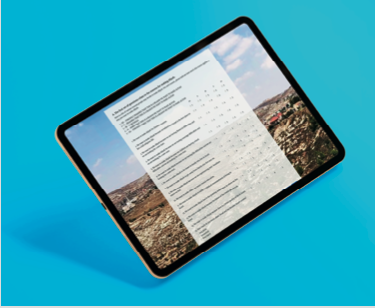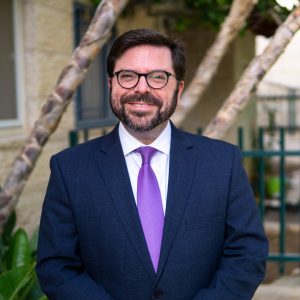Online Tool Helps Families Plan for Aliyah Success
The aliyah process is all-consuming. Between paperwork, information sessions, financial planning, divesting, packing and arranging housing and schooling in Israel, families may overlook the psychological implications of relocating to a new country with an entirely different culture, language and way of life.
Thanks to a new online resource launched by Ariel University’s Center for Research on Aliyah (CRA), North American families can now gauge their chances of aliyah success via a fifteen-minute questionnaire. The Aliyah Risk Calculator (aliyahresearch.com/calculator/) scientifically measures a family’s likelihood to prosper in Israel based on its strengths and resources as well as its risks, which are gleaned from their answers on everything from family dynamics and communication style to marital satisfaction, reasons for making aliyah and even children’s temperaments and potential special needs.
“When making aliyah, you want to see how you are on all of these fronts,” says Rabbi Dr. Avidan Milevsky, associate professor of psychology and a researcher at Ariel University in Israel, who invented the calculator with his wife Ilana, a psychologist. “Studies show that if you’re making aliyah due to ‘push’ factors—if you feel you’re being pushed out of where you are, if you have issues with your marriage and you want to start fresh or are experiencing anti-Semitism—you are less likely to have a successful aliyah. We’re doing a study now to figure out why that is. On the other hand, if you’re coming to Israel because of being pulled—our life is fine in America, we have a nice family, a good marriage, jobs, the kids are happy, but we’re pulled by religious factors or Zionism—studies show you’re more likely to succeed long term.
“The calculator questions help you establish why you’re moving. If you’re just running away from a problem, the problem comes with you in the suitcase, whereas a family with strengths could deal with life adversity and grow from it. It’s ultimately about higher resources and less risk.”
Upon completing the survey, participants receive a score and are assigned one of three colors associated with their level of risk—green, yellow or red. Based on the outcomes, respondents receive tailor-made suggestions for consideration, even if they score a green.
“Everybody and his grandmother has got some anecdote. ‘Do this, don’t make aliyah like this,’ and, ‘Go here, don’t go there,’” notes Rabbi Dr. Milevsky. And he should know. Following a remarkable Sabbatical year in Israel in 2012, he and his wife made aliyah from Baltimore/Washington to Ramat Beit Shemesh in 2016 with their children Liora, Tamar, Uzi, Mati and Moriah—but not before they were warned that uprooting their then-teenage daughters was a “recipe for disaster” and “borderline criminal.”
“Everyone had forecasts about our kids,” he recalls. “My wife and I are both psychologists and we didn’t want to hear horror stories or vignettes; we wanted to know what the research says. There was very little research on religious North American immigration to Israel from the psychological family dynamic angle, so we focused on that. We conducted a qualitative study in which we interviewed twenty families about their experiences to get a larger picture beyond anecdotes, and then we did a study with Nefesh B’Nefesh of 140 families to really see what contributes to successful aliyah. We also explored research on immigrant experiences to get a feel for what goes into successful immigration. And we asked ourselves, ‘Do we have what it takes?’” Five years following their aliyah, the Milevskys are thriving, affirming that indeed they did.
Yet although they scored a green on the calculator, Rabbi Dr. Milevsky stresses that his family still worked hard before and after moving to Israel to reinforce resources that were weak. Having left all of their immediate family behind, for example, the Milevskys cultivated deep bonds with Israeli relatives with whom they are now extremely close.
For those who fear that landing in the red zone may deter them from pursuing aliyah, Rabbi Dr. Milevsky is encouraging. “If you score a red, we’re not telling you, ‘Don’t come,’” he clarifies. “We’re saying, ‘Take this into account first. You may want to pause and clean house, so to speak, and you may be ready in a year from now.’
“Aliyah could be the most beautiful move a family makes, and it’s going to enhance your life in immeasurable ways. But there’s stress involved with any move. The goal of this endeavor is to open people’s eyes and to let them know—these are the factors involved, and this is what you should be working on. It can be a wonderful opportunity for people to really fulfill their dreams.”
Aviva Engel is an award-winning freelance journalist and a director of communications in Montreal, Canada.
More in this Section:
Making Aliyah in the Midst of a Pandemic as told to Aviva Engel


